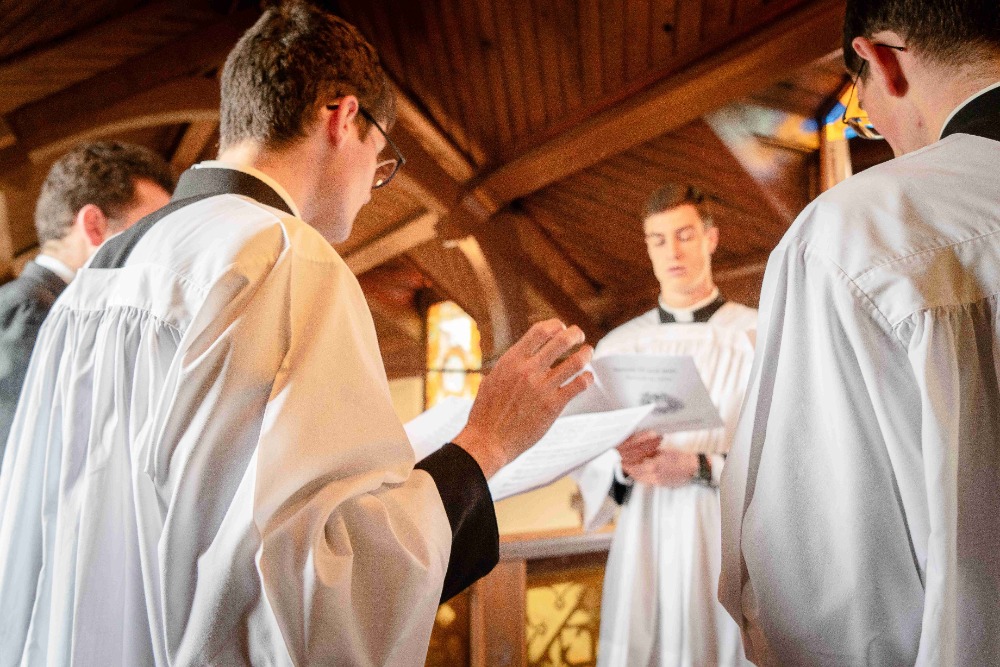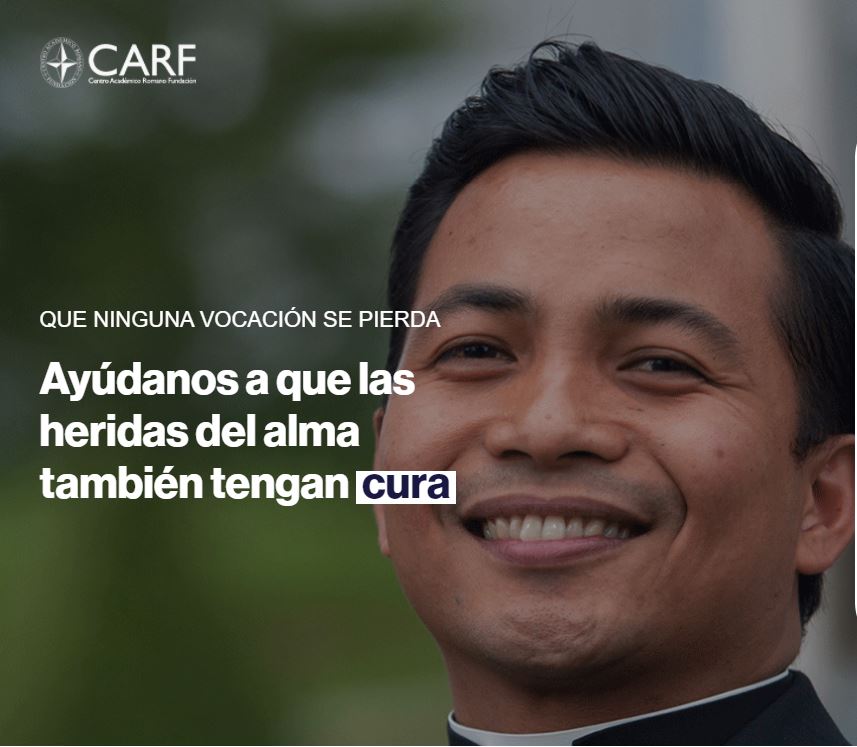
For this reason vocations are always necessary and, the Pope adds, "especially today in times marked by fragility and suffering caused also by the pandemicThe "new" situation has given rise to uncertainty and fear about the future and the very meaning of life itself".
It is very true that St. Joseph has to do with the deepest dreams of every person. The dream of every person, Francisco points out, is love: "It is love that gives meaning to life, because it reveals its mystery. Life, in fact, is only to be had if it is given, only truly possessed if it is fully surrendered.".
God, we could say, is, therefore, "the first protagonist" of St. Joseph's dreams: "Through the dreams that God inspired in him, he made his existence a gift". He gave St. Joseph the ability to give himself, entirelyHe was a man of great plans of God, decisive for the salvation of humankind. And to do so through a simple life, without extraordinary human brilliance.
It is worthwhile, among many things as we are seeing, to call attention to Francis' terminology, alluding to the discernment of God's will through dreams, at least in the case of St. Joseph. For just as we have the meaning (external) of the ear, there is in us something like a "inner ear". And it does not refer here to the anatomical structure that is deeper than the eardrum, but to a capacity of the soul: the capacity to listen to the most ordinary signals that God sends us.
In the case of St. Joseph, writes the Pope, "to his vigilant inner ear, only a small signal was enough to recognize his voice (the voice of God). And note that this also applies to the calls that the Lord addresses to us:
"God does not like to reveal himself in a spectacular way, forcing our freedom. He makes his plans known to us with gentlenessHe does not dazzle us with shocking visions, but gently addresses our interiority, drawing intimately close to us and speaking to us through our thoughts and feelings. And so, as he did with St. Joseph, he proposes lofty and surprising goals.
As in the case of the father of Jesus, God's calls make us change our plans, they ask us for the courage to follow his will, They push us to go out, to give ourselves, to go beyond:
"There is no faith without risk," Francis confirms. Only by confidently abandoning oneself to grace, setting aside one's own plans and comforts one truly says 'yes' to God. And every 'yes' bears fruit, because it adheres to a greater plan, of which we only glimpse details, but which the divine Artist knows and carries forward, to make each life a masterpiece."
But Joseph's listening or welcoming is not passive but active: he puts it into action, with courage and fortitude (Apostolic Letter Patris corde, 4). "May he, Francis asks him, help everyone, especially young people in discernment, to realize the dreams God has for them; may he inspire the courageous initiative to say 'yes' to the Lord, who always surprises and never disappoints."

We have a mission, "Let no vocation be lost".. You can help us to achieve it.
"Every true vocation is born of the gift of self, which is the maturation of simple sacrifice. This kind of maturity is also required in the priesthood and consecrated life. When a vocation, whether in married, celibate or virginal life, does not reach the maturity of self-giving by stopping only at the logic of sacrifice, then instead of becoming a sign of the beauty and joy of love it runs the risk of expressing unhappiness, sadness and frustration." (Patris corde, 7).
In what does this gift of self show? It is seen in deeds: with his "willingness to face new situations every time, without complaining about what was happening, ready to lend a hand to fix things", St. Joseph served as "the outstretched hand of the heavenly Father to his Son on earth.". And precisely She is therefore a good model for all vocations, called to be instruments of God the Father's love, "the Father's diligent hands for his sons and daughters".
Thus, the Pope refers to St. Joseph also as "guardian of vocations".. By his attentive and solicitous care, by his setting aside his own ambitions and nostalgia, he encourages us to take care of what the Lord entrusts to us through the Church.
"Accompany your priests with the affection and the prayer for their vocationsthat they may always be shepherds after God's own heart". Pope Francis
St. Joseph is the righteous man who prays and quietly exercises his humble work carpenter (cf. Mt 13:55), with patience, in the midst of everyday life. He "knows that existence is built only by continuous adherence to the great choices". In this way, he certainly "did not inspire the chronicles of the time, but the daily life of every father, every worker and every Christian throughout the centuries. Because vocation, like life, matures only through daily fidelity". The example of St. Joseph, guard and serve
And this fidelity, as we have already seen, is nourished by what the word itself expresses: trust in God, who from the very beginning says to him: "Do not be afraid. These words serve to preside over, strengthen and guide not only the beginning of the journey, but the entire journey, transforming it into a path of joy. It is worthwhile to read this paragraph, located at the end of the Francis' message:
"Do not be afraid: these are the words that the Lord addresses also to you, dear sister, and to you, dear brother, when, even in the midst of uncertainties and hesitations, you feel that you can no longer postpone the desire to give him your life.
Words that he repeats to you when, wherever you are, perhaps in the midst of trials and misunderstandings, you struggle every day to fulfill his will.
They are the words that you rediscover when, along the path of your call, you return to your first love. They are the words that, like a refrain, accompany those who say yes to God with their lives, like St. Joseph, in daily fidelity".
Mr. Ramiro Pellitero Iglesias
Professor of Pastoral Theology
Faculty of Theology
University of Navarra
Published in "Church and new evangelization".